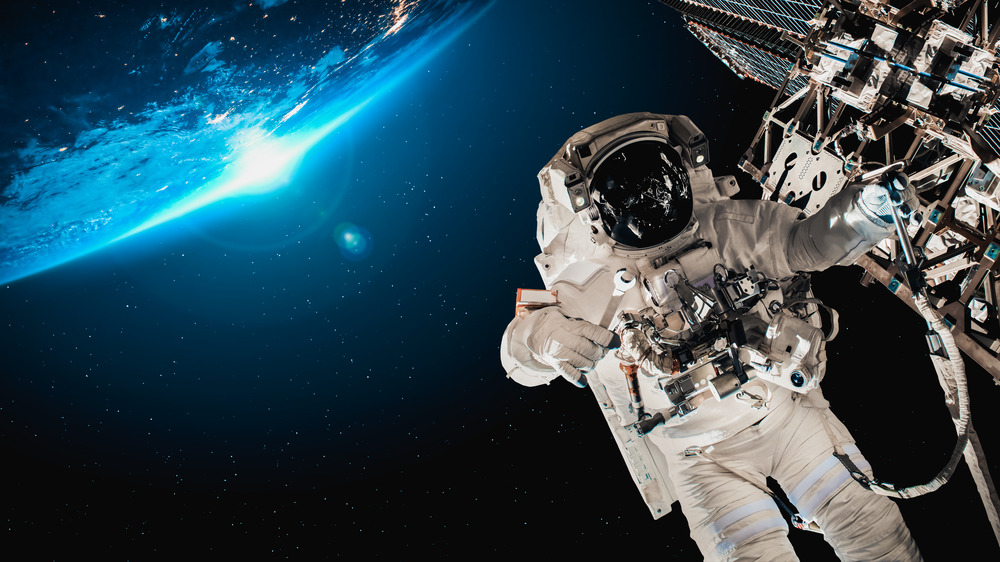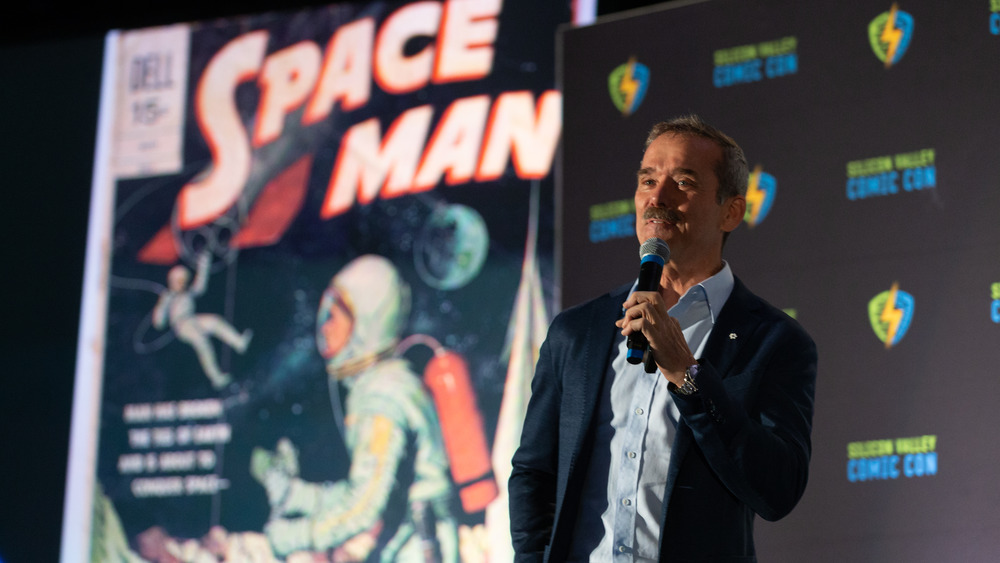The Real Reason Astronauts Can't Cry
"In space no one can hear you scream," said the tagline of the advertisements for the 1979 hit sci-fi film Alien. The phrase offers more than a good marketing campaign — it's actually true. Sound, which is really just a mechanical wave, needs something to move through, like water or air. Space has neither of those things, so if someone screamed in space, no screech would be apparent, according to "How Things Fly" from the Smithsonian National Air and Space Museum.
Space offers a different sphere of existence, and the astronauts who travel there cannot do quite a few things that are commonplace on Earth. For example, food becomes a whole new experience in space. Various seasonings like salt, for instance, work poorly without earth's gravity and cause problems when floating through the ship, even blocking air vents or damaging equipment, according to NASA, who allows their astronauts only liquid forms of the flavorings.
Bread is also a no-go, since it tends to break apart. This is something that John Young discovered on March 23, 1965 after the Gemini 3 launched, when he presented a stowaway to his crew mate, Gus Grissom: a corned beef sandwich. The sandwich broke up even as Grissom tasted it, and according to Space.com, he said of the taste, "Pretty good, though, if it would just hold together."
Astronauts also can't cry in space ... even if upset about their lost sandwiches.
In space, no one can see you cry
Living in microgravity thwarts the act of crying, according to Business Insider, which quotes an explanation by Canadian astronaut Chris Hadfield (pictured in photo): "Your eyes make tears, but they stick as a liquid ball. In fact, they sting a bit. So — space tears don't shed."
In fact, according to The Atlantic, while astronauts tear ducts can produce water, the zero-gravity environment prevents them from flowing. As NASA spacewalk officer Allison Bollinger confirmed to the publication, "They actually kind of conglomerate around your eyeball."
This can become problematic, as Hadfield learned in 2001 while on a spacewalk near the International Space Station. His eye teared up and the accumulated liquid blinded him. He actually needed to call mission control for help, according to Wired. Fresh oxygen released from the opened purge valve on his helmet fixed the situation.
Hadfield demonstrated (via a YouTube video) how tears in space can become painful if not removed. He recommends "grabbing a hanky" to dry them.

